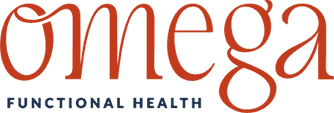At Omega Functional Health we provide comprehensive, non-invasive support for children and adults struggling with dyslexia. Our approach focuses on addressing the underlying neurological factors that contribute to learning difficulties, using cutting-edge therapies to promote brain balance and cognitive development. By targeting areas of the brain responsible for reading, processing, and comprehension, we aim to empower individuals to overcome the challenges of dyslexia and thrive in their academic and personal lives. Whether you’re seeking support for your child or looking to improve your own reading skills, we’re here to help with a personalized, drug-free solution.
What Our Patients are Saying
What is Dyslexia?
Dyslexia is a learning disorder that makes reading, writing, and spelling difficult. It happens because the brain struggles to process language, especially when it comes to breaking down words and sounds. Someone with dyslexia might mix up letters that look similar, like “b” and “d,” or they may struggle to sound out words when reading. They might also read slowly, skip words, or have trouble remembering what they just read. Even though dyslexia doesn’t affect intelligence, these challenges can make learning to read harder.


What Causes Dyslexia?
Dyslexia is caused by poor communication between the brain’s hemispheres, with the left hemisphere, which is responsible for language and reading, often being underactive and too slow. This imbalance in brain timing leads to difficulties in word and language pattern recognition. Developmental delays in brain function, including the improper integration of early reflexes and sensory processing, contribute to the brain’s miscommunication. These delays affect how efficiently the brain processes information, making it harder for individuals with dyslexia to read and process language.
What are Early Signs of Dyslexia?
Early signs of dyslexia can appear in preschool or early elementary years. Some common signs include difficulty learning the alphabet, trouble recognizing rhyming patterns, and struggling to pronounce simple words. Children with dyslexia may mix up letters or sounds, have trouble remembering the names of letters, or be slower to learn new words. As they start to read, they might reverse letters like “b” and “d,” struggle to sound out words, read slowly, or avoid reading aloud.

How Does Omega Help with Dyslexia?
We use a holistic, non-invasive approach to support individuals with dyslexia by addressing the root neurological causes. Our focus is on improving brain connectivity, specifically between the left and right hemispheres, to strengthen the areas responsible for reading and language processing. We utilize targeted exercises and sensory-motor integration therapies to help speed up the brain’s processing speed, particularly in the left hemisphere, which is often slower in people with dyslexia. These exercises are designed to stimulate brain activity and enhance the communication pathways needed for better phonological processing, word recognition, and reading comprehension. By retraining the brain, we help individuals overcome reading difficulties and achieve lasting improvements in their learning abilities, all through a personalized, drug-free plan.
FAQ
- What are the challenges of dyslexia?
- Can you help with other forms like dyscalculia?
- What are some of the other specialized therapies you use?
- How long does it take to see results with your Dyslexia treatment approach?
- What role do parents play in their child’s Dyslexia treatment?
- What areas do you serve?
- Dyslexia presents several challenges, especially in reading, writing, and spelling. Individuals with dyslexia may struggle to decode words, mix up letters like "b" and "d," read more slowly, and have difficulty understanding what they’ve read. These challenges can extend to memory, concentration, and following instructions, which may affect learning in school or work.
- Dyslexia or Dyscalculia can affect an individual's ability to understand numbers and math concepts. People with dyscalculia may have trouble with basic arithmetic, understanding number sequences, telling time, or estimating quantities.
Yes, we also provide support for other learning difficulties, such as dyscalculia, which affects an individual's ability to understand and work with numbers. Like dyslexia, dyscalculia can stem from brain connectivity issues. We use similar brain-based approaches to address the underlying causes, helping to improve cognitive processing and problem-solving skills related to math and numerical understanding. Our personalized, non-invasive therapies aim to strengthen brain function and provide long-lasting improvement for both dyslexia and dyscalculia.
- Laser therapy, which stimulates brain cells and promotes better neurological communication, helping with focus and cognitive function.
- Interactive Metronome, a therapy that enhances timing, coordination, and attention by synchronizing the brain’s timing circuits, improving both cognitive and motor skills.
- Sensory-motor exercises, often incorporating video games, are designed to engage and integrate sensory input while improving motor function. By using interactive and engaging activities, such as video games, we strengthen the brain's foundation for attention, impulse control, and emotional regulation. These exercises help improve coordination and cognitive function in a fun, dynamic way that keeps children and adults engaged while promoting neurological development.
- Vestibular therapy, which focuses on improving the brain-body connection through balance and spatial orientation exercises. This therapy reduces anxiety and helps regulate the nervous system, creating a more stable foundation for attention and emotional control.
- Transcranial electrical stimulation (tES), a non-invasive technique that helps modulate brain activity, promoting better focus, self-control, and overall brain function.
The time frame for seeing results varies depending on the individual and the severity of their Dyslexia symptoms. Many people begin to notice improvements within a few weeks to a few months, though consistent therapy is often required for long-term benefits. Our comprehensive evaluation helps tailor the program to each person’s unique needs, optimizing the time to see results.
Parents play a crucial role in their child’s Dyslexia treatment. We actively involve parents by educating them about their child’s progress, providing at-home activities, and encouraging them to create supportive environments for their child’s growth.
Our office is conveniently located in Wheat Ridge and we serve patients from the Denver metro including Arvada, Lakewood, Golden, Denver, highlands ranch and castle rock.


